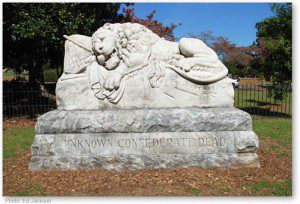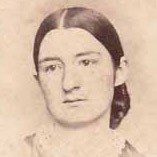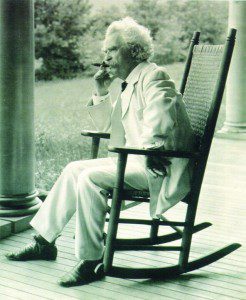 I invited my friend Wanda Burch, the author of She Who Dreams, to contribute a guest article for this blog today. She is both a dream teacher and a trained historian who grew up in the South. She has been researching the dreams of soldiers and their families during the American Civil War for a new book that I believe will be a major contribution to our understanding of something that has been generally ignored by our schools and universities: the vital importance of dreaming is every period and every aspect of the human story.
I invited my friend Wanda Burch, the author of She Who Dreams, to contribute a guest article for this blog today. She is both a dream teacher and a trained historian who grew up in the South. She has been researching the dreams of soldiers and their families during the American Civil War for a new book that I believe will be a major contribution to our understanding of something that has been generally ignored by our schools and universities: the vital importance of dreaming is every period and every aspect of the human story.
Dreams of Sarah Lois Wadley, August 1863
by Wanda Burch
In researching the dreams of Civil War soldiers, I came upon a detailed journal kept by a young woman, only 19 years old. Her dreams are recorded in the same exacting detail as her observations about her family and about her life in the years of the Civil War. This dream, misunderstood in its revelation, remained in her memory her entire life:
Sarah Lois Wadley recorded her impressions of the Civil War years in a journal begun when she was a teenager. Her father worked for the Vicksburg, Shreveport and Texas Railroad, appointed in 1864 Superintendent of the Confederate railroad system.
An entry in Sarah’s journal, dated August, 1863, Oakland, Georgia, described a dream “vivid as reality.” Although family members were in the garden, Sarah was alone inside the house on the evening of the dream and recorded her unlikely nervousness and her feeling that something was going to happen. The manifestation of that premonition was her “vivid” dream, more like a vision, made more real in its introduction – her mother standing in the hall of their home, calling her and pointing into the evening sky where a star with the brilliance of Jupiter shown.
The dream star grew as large as a moon, other stars forming around it in the shape of the word, NEBRASKA. She felt that this had something to do with the destiny of her country. Then the word MASSACHUSETTS formed. The young Confederate reacted with horror and disappointment, then terrible grief for her country.
A more gentle hand touched her shoulder and she saw the word “epouvantee. “ Not understanding why, she felt joy and relief, perfect peace instead of bitterness and terror. The words disappeared from the sky and in their place, rising from the east, was a glorious sun with beams of crimson and gold. Outside the lawn was “crowded with negroes gazing awestruck, but they began to disperse” and Mr. Kern, a pastor in Savannah, drove up. In the dream she attempted to describe to him her dream and was still talking to him when her sister woke her.
She was unfamiliar with the French word and attempted to look it up, finding a meaning of “intimidated” or “terror” which seemed a good fit for her dream but still unexplained in its paring with joy and her feelings of peace within the dream. In sharing her dream with her family Sarah mistakenly presumed that her joy in the dream foretold Confederate victory; but more likely the dream foretold the end of slavery and ultimately a more enlightened solution to a country ripped apart by death, hatred, and terrible suffering on both sides.
 Sarah’s vision was so dazzling that it remained with her, and her interpretation shifted to feeling that the unseen hand was that of a greater power whose mercy and wisdom prevailed in spite of her wishes for a different outcome. Sarah’s family survived the war. They moved to a plantation, “Great Hill Place,” near Bolingbroke, Monroe County, Georgia. Sarah tended her parents there in their elderly years and died there in 1920.
Sarah’s vision was so dazzling that it remained with her, and her interpretation shifted to feeling that the unseen hand was that of a greater power whose mercy and wisdom prevailed in spite of her wishes for a different outcome. Sarah’s family survived the war. They moved to a plantation, “Great Hill Place,” near Bolingbroke, Monroe County, Georgia. Sarah tended her parents there in their elderly years and died there in 1920.
(c) Wanda Burch
Source note: Sarah’s journal is the property of the University of North Carolina at Chapel Hill. Source Description: (manuscript) Diary, August 8, 1859 – May 15, 1865 Sarah Lois Wadley 607 pp.Call number 1258 (Manuscripts Dept., Southern Historical
Monument to unknown Confederate dead in Oakland, Georgia cemetery

